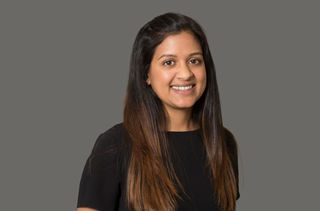Reinvigorating the GP Partnership Model
25/10/18The spotlight is firmly on GP Partnerships as a model to take general practice forward. General practice is being pushed to work at scale, have multi-disciplinary teams, collaborate and generally just be “bigger and better”.
There are obvious merits in working at scale but does that require the casting aside of the traditional GP partnership model? Is this model of business ownership fit for the general practice of the future? Do we need to ditch it or does it just need some revitalisation?
Dr Nigel Watson, the Independent Chair of the GP Partnership Review, has reviewed exactly these questions (and others) and his Interim Report was published on 2 October 2018 to address this issue.
Dr Watson has said that despite the major challenges that general practice is facing with a rising workload and a changing workforce, “the traditional partnership model is not dead” and, in fact, we should be doing more to help it survive and prosper. He summarises his suggestions for how to achieve this by looking at the workforce, workload of GPs, premises issues and other business models as well as addressing the broader issues facing general practice. Final recommendations are expected to be made by the end of the year.
Workforce
It is no secret that the number of GPs in the last two years has fallen significantly. Couple this with the fact that as many as one third of practising GPs intend to retire within the next five years and fewer trainees qualifying as GPs wanting to become partners and are instead changing their career paths, you are looking at an already stretched workforce reaching bursting point. The General Practice Forward View forewarned of these issues and committed itself to recruiting more GPs but there has been little easing of such pressures in practical terms.
The Interim Review identifies areas such as improving work-life balance, introducing more flexibility for GPs and supporting them throughout their career progression, which could all lead to a more stable workforce and improve recruitment.
Becoming a partner can be a scary concept and the Interim Review acknowledges that trainee GPs have insufficient awareness and knowledge of what it means to be a partner. Therefore, investing time and money in raising awareness of the partnership model and training to prepare for partnership could have long term benefits. It could also create new posts for newly qualified GPs to develop their clinical interests and resource “protected time” for GP partners to mentor others.
Workload
The rising workload for GPs has been a major reason for the changing workforce and the highest source of job related stress. This clearly has a direct impact on the retirement of GPs. Whilst there are existing strategies in place to help with this, more can be done to support partners such as reliving the burden of administrative tasks, simplifying access to funding and sharing learning across practices.
Alternative Business Models
The majority of GP practices operate through the traditional partnership model. The Interim Review identifies that there are risks with this current model and at the moment they outweigh the benefits of being in partnership, which is a significant factor in dissuading GPs from becoming partners. The Interim Report looks at how personal risk can be managed, the potential for GP practices to operate via other business models and the involvement of different professions in the partnership.
As part of its efforts to limit personal risk, the Interim Review comments on how premises are seen by partners as a major liability and how new partners are not willing to commit to a lease without adequate protections being in place. Issues of concern include remaining liable for a lease in the event that the NHS Contract is terminated, a lack of transparency about service charge costs from NHS Property Services and the old but very important chestnut of “last man standing”.
A separate General Practice Premises Policy Review is being undertaken to see how these issues can be addressed, including improved assignment clauses in leases, break rights linked to NHSE contract termination and the merits of the separation of the GP partnership business from that of the premises ownership.
Medical indemnity costs are currently a huge expense for GPs, especially those who do not work full-time, and the state backed indemnity scheme (expected to be in force in April 2019) is intended to reduce this risk.
Alternative business models have been promoted as a way to limit personal liability, such as an LLP, employee ownership or CICs. However, current law restricts this opportunity and it will require a change in primary legislation to make this more of a viable option. We do not believe we are likely to see this any time soon.
Conclusion
Clearly, there are major concerns with the partnership model as a sustainable business structure for general practice. The issues highlighted in the report range from partner recruitment and retention issues, unlimited liability, workload pressures, premises risks, and indemnity costs (to mention a few!).
All is not lost however and over the next three months, Dr Watson and the review team will move to the next stage and look to consult. Dr Watson’s Executive Summary summarises it perfectly:
“The potential that sits within the partnership model needs to be unleashed, as this will benefit our patients and the wider NHS. To achieve this, we need support from the NHS and partnerships to engage and lead the transformation to a better future.”
From a practical and legal point of view, here are some initial tips further to the Report:
- Make sure your “house is in order” by having an up to date Partnership Deed (and Declaration of Trust if applicable) so that not only is your business and property properly protected but any new partner, who may be looking to join, is fully aware of the terms of the partnership.
- Any new partners who are looking to join a partnership should take legal advice on their offer letter and any documentation they are required to sign.
- Take specialist legal advice before entering into any leases of medical premises and make sure you understand the possible opportunities (as well as risks) connected with owning your own surgery premises.
For more information or to discuss any aspect of your practice please contact Puja Solanki or find out more about our GP expertise here.







